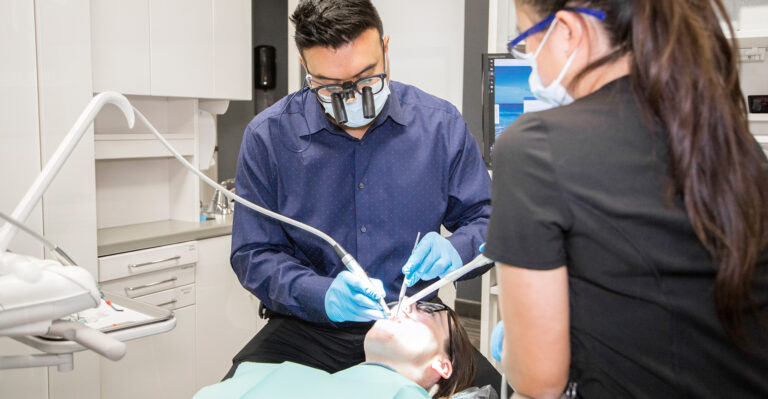Poor oral habits lead to gum disease, which can advance to a more serious condition called periodontitis, if not addressed and managed on time. This destructive condition is characterized by inflammation of the gums, bone deterioration, and eventual tooth loss. As gum disease progresses, it creates deep pockets in the gums that provide an ideal environment for increased bacterial growth and plaque accumulation, aggravating the condition.
Thankfully the dental team of the Port Orange dentist possesses extensive knowledge and experience in addressing gingival pockets with effective periodontal treatments such as pocket irrigation. Scroll down to explore this non-invasive procedure further.
| Pocket irrigation, a dental procedure, aims to remove debris, plaque, and other buildup from interdental and subgingival spaces. It utilizes a specialized tool known as a pocket irrigator. |
Pocket irrigation offers the following benefits that make it popular:
Offer subgingival cleaning
Pocket irrigators have rounded end tips, preventing damage to the soft tissue below the gum line. The bacteria, plaque, and toxins can be easily flushed out subgingivally.
Offer interdental cleaning: The interdental gum tissues remain healthy since the pocket irrigators can eliminate the plaque and debris from between the teeth.
Prevent halitosis (bad breath)
Bad breath or halitosis could result due to the food particles combining with bacteria to produce foul-smelling by-products. Regular brushes or dental scrapers alone cannot reach the depths of the gum pockets. This is possible through powerful yet gentle water jets that flush out foreign particles.
Antimicrobial application
Antimicrobial agents can be used in combination with water jets or used alone, which can prevent or kill some strains of harmful oral bacteria.
Pocket irrigation procedure
Pocket irrigation is usually performed as a part of professional dental cleaning or along with surgical procedures like pocket reduction surgery.
Used with the deep cleaning procedure: Your dentist will use a pocket irrigator after routine scaling and root planing to cleanse the pockets. An antimicrobial agent may be applied to reduce subgingival oral bacteria.
Used in combination with pocket reduction surgery: Your dentist will eliminate calculus (hardened plaque) and subgingival plaque with special scaling and root planing instruments. An antimicrobial agent will be applied through an oral irrigator to eliminate any remaining subgingival bacteria.
Used at home
Your dentist can recommend pocket irrigation at home as a part of your daily routine using a water jet or water pick. This is considered less harmful than dental flossing.
If left untreated, gum disease can lead to tooth loss. It’s essential to manage the infection promptly. Regular dental check-ups are crucial in preventing this outcome. These visits may include treatments such as pocket irrigation, which can stop further damage and improve your overall health.

